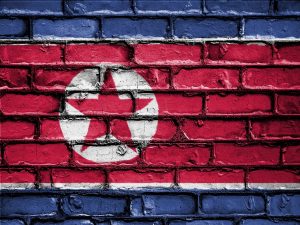South Korean Foreign Minister Chung Eui-yong and U.S. Secretary of State Antony Blinken explored “creative” ways to engage North Korea on the sidelines of the United Nations General Assembly. Subnational diplomacy is one creative approach that the United States could employ in outreach to Pyongyang, especially given the decades-long history of American state and local officials engaging with North Korea.
Subnational diplomacy offers opportunities for cities and states to enhance their cultural, economic, and political ties with peers as well as national governments abroad. Yet sanctions and travel restrictions currently pose significant challenges to the success of such engagement with North Korea. To foster innovative, creative, and responsible engagement with North Korea, the national government should engage with its subnational counterparts undertaking such engagement whenever possible. This can also help ensure that subnational engagement is both principled and constructive, and that any political, legal, or security risks are mitigated.
Some engagement has already taken place through the visits of American state and local officials to North Korea, though sometimes in an unofficial capacity or when the officials were not serving in office. Despite the unofficial nature of some visits, these visits still carry significance particularly given the lack of regular and sustained contact between Americans and North Koreans. Subnational officials who have visited North Korea include former Mayor of Hickory, North Carolina Jeff Cline, former Mayor of Homer, Illinois Ray Cunningham, and the late Pennsylvania State Senator Stewart Greenleaf, who helped deliver humanitarian assistance to North Korea.
While subnational engagement by itself will not be a solution for the many challenges that exist between North Korea and the United States, there is precedent for a visit by a subnational official to provide a breakthrough on certain issues with a country with which the United States does not have diplomatic relations. Well over a decade before the Obama administration restored official diplomatic relations, Governor George Ryan of Illinois became the first sitting American governor to visit Cuba since the Cuban revolution. That visit proved to be a catalyst for the Chicago Tribune to open a bureau in Havana as well as paving the way for agricultural and humanitarian exports from the United States.
Principled engagement, especially among political leaders, is also critical to gain a deeper and more nuanced understanding of a country that few Americans have ever visited. For example, though dozens of members of Congress and Congressional staff have visited North Korea, only two members of the current 117th Congress are known to have traveled to the country. When the 117th Congress was sworn in, the then-sitting mayor of Homer, Illinois had spent more time in North Korea than every sitting American member of Congress combined. This does not bode well for American policy and strategy on North Korea.
Other subnational officials have crafted policy related to North Korea. The state legislature of Colorado passed resolutions calling for the return of the USS Pueblo and designated January 23 as USS Pueblo Day. This U.S. Navy ship, named after Pueblo, Colorado, was seized by the North Korean government in 1968 and remains on display in Pyongyang to this day.
In 2019, New York City Councilman Joe Borelli proposed at the City Council to name the street in front of the North Korean Mission to the United Nations “Otto Warmbier Way” in honor of the American tourist who was held in North Korea for allegedly stealing a poster and died just days after returning to the United States in a coma. After Warmbier’s death, Chicago Alderman Ed Burke also introduced a resolution in the City Council that would have prohibited any airlines that fly to North Korea from flying into Chicago O’Hare International Airport as well as divesting “city funds deposited or invested through financial institutions that engage in financial transactions with the North Korean government.”
Already, subnational officials are taking actions that both engage and confront North Korea. Therefore, a more formal channel should be created to more effectively leverage local expertise, such as an Office of Subnational Diplomacy at the U.S. Department of State, to ensure national officials are aware of any subnational diplomacy taking place and that such efforts do not undermine more traditional diplomacy. This also will encourage national and subnational officials not to send mixed signals when engaging abroad.
Subnational diplomacy offers an established, yet underutilized, opportunity for American officials to creatively engage Pyongyang. Should the Biden administration signal a willingness to remove barriers to such engagement, city and state officials will have the potential to provide breakthroughs, promote mutual understanding, and build people-to-people ties that are so desperately needed between Americans and North Koreans.

































